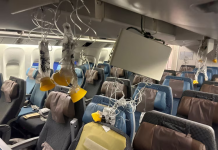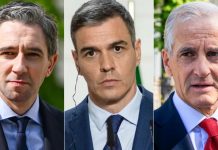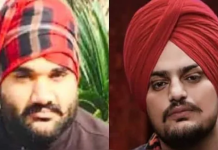US Secretary of State Antony Blinken has preambled Prime Minister Narendra Modi’s upcoming “historic” state visit, saying central to emerging cooperation in critical technologies between the two countries such as semiconductors and defense was “reducing strategic dependencies”.
Blinken has inserted a new phrase into the narrative around the India-US relationship whose limits have been defined by New Delhi’s pursuit of strategic autonomy, which is a foreign policy construct deployed by India to choose friends without committing itself to anything serious.
“Central to all of this cooperation is diversifying and deepening our supply chains with trusted countries, also reducing strategic dependencies,” he said in remarks to business leaders of the two countries at the start of an annual conference on the relationship of the US-India Business Council, an offshoot of the US Chamber of Commerce, the most powerful of American lobbyists.
Blinken was referring to a recent surge in cooperation between the two countries on emerging critical technologies, which is a dialogue that was flagged off by Prime Minister Modi and President Joe Biden in 2022 and fast-tracked by the two sides in a meeting of National Security Advisers Ajit Doval and Jake Sullivan earlier this year.
This engagement contains the promise of the next big outcome in the relationship, which could be announced during Modi’s visit later in June: joint production of US giant General Electric’s (GE) jet engines in India. India currently uses GE jet engines delivered ready for use.
Expanding on the theme of “reducing strategic dependencies”, the top US diplomat spoke of cooperation between the two sides on semiconductors and solar power equipment, the two areas on which the US has been cutting its dependence on China, specially after disruption caused by Covid-19.
“My friend and colleague Secretary of Commerce (Gina) Raimondo and her counterpart Minister (Piyush) Goyal, recently established a partnership to make our semiconductor supply chains more resilient.”
He went on to talk about US investment in a solar manufacturing facility in Tamil Nadu.
“It will shift a key component of our clean energy supply chains to a close partner. That’s what we mean when we say we are building more resilient, more diversified supply chains,” he added.
Secretary Blinken did not say the US has expectations of India on “reducing strategic dependencies”, but it could be an acknowledgement and acceptance of India’s dependence on Russian oil, which it has been getting at heavily discounted rates for its own use and export, to circumvent US-led western sanctions.
The Secretary of State was extremely bullish on the bilateral relationship and pitched his own speech as a run-up to Modi’s upcoming visit.
“I couldn’t be more pleased to actually kick off tonight the upcoming state visit with all of you,” he said, calling the visit “historic” earlier.
An Indian Prime Minister is coming to the US on a state visit — including a state dinner — after nearly 14 years, nine of which have been Modi’s.
Prime Minister Manmohan Singh was the last Indian Prime Minister given a state dinner. It was in 2009.
He was President Barack Obama’s first state guest — an event that will probably be remembered also for the couple that gate-crashed it, in flagrant breach of security arrangements.
20230613-075802




